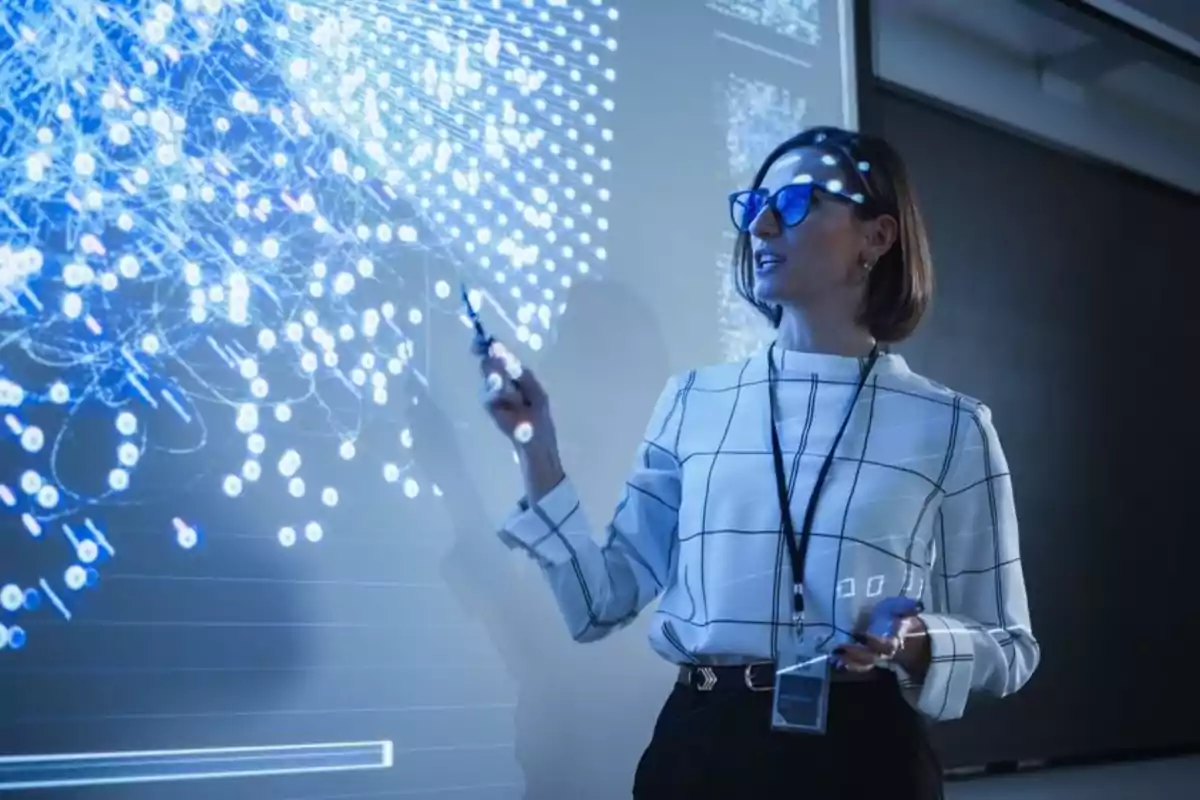
Only 22% of Women in the Tech Sector Work in AI
The 2024 Employability and Digital Talent Study by Fundación VASS and Fundación Universidad Autónoma de Madrid
As Artificial Intelligence (AI) becomes the cornerstone of digital transformation, a critical concern arises: the lack of female representation in key technological sectors. The 2024 Employability and Digital Talent Study, conducted by the VASS Foundation and the Autonomous University of Madrid Foundation, in collaboration with GenAIA, Spain's first Generative AI association, highlights the alarming gender gap in AI development and adoption, with only 22% of women actively participating in this discipline according to data from the World Economic Forum of UNESCO.
The report indicates that Artificial Intelligence, especially generative AI, is reshaping work and business dynamics, but the scarcity of women in this field is limiting its growth potential and equity. "AI is one of the most disruptive technologies of our time, but without greater inclusion of women, we won't be able to harness its full potential to transform society," says Antonio Rueda, Director of the VASS Foundation.
Women, Out of the Center of Technological Advancement
According to the study, although digital transformation is booming, with sectors like AI growing exponentially, female participation remains limited, especially in technical and leadership roles. The figures are clear: only 18% of women specialize in STEM disciplines (Science, Technology, Engineering, and Mathematics), which significantly reduces their presence in the sectors shaping the future of employment.
"The low percentage of women in these areas is not only a representation problem but also a diversity issue in the development of technological solutions," adds Rueda. "AI is destined to impact all aspects of our lives, and it is essential that women's vision and voice are integrated from the beginning in its development."
Artificial Intelligence and Employment: A Paradigm Shift
Generative AI is transforming the labor market, automating tasks and creating new job opportunities. However, this advancement is also introducing challenges in terms of skills and competencies. The study by the VASS Foundation and the Autonomous University of Madrid Foundation highlights that companies are facing difficulties in filling AI-related positions due to a lack of qualified talent, especially among women.
"It is challenging to achieve the desired expansion without greater female participation," the report emphasizes. The number of women enrolled in computer science degrees has increased by 127.5% since 2015, with better performance ratios than men, yet they still only represent 21% of graduates in these areas.
Additionally, the ICT sector has a significant gender gap, with only 29.8% of those employed in the sector being women, compared to 46.3% in the rest of the Spanish economy.
"There is a considerable gap between the skills demanded by the market and those possessed by university graduates, and this is even more pronounced in the case of women," comments Rueda. "It is necessary to promote initiatives that bring women closer to training in AI and other emerging technologies so that they can take advantage of future job opportunities."
In this context, the VASS Foundation, in collaboration with VASS University, is organizing the webinar "If AI Learns from Us, Why Does It Ignore Women?" to be held next Thursday, February 27 at 4:00 p.m. online. This event will feature Verónica Sánchez Medero, Global Capital Markets Leader at VASS and a member of GenAIA, and will address the lack of female representation in AI development, as well as the importance of reskilling and upskilling, the promotion of STEM, and applied research to ensure inclusive AI.
Inequality in Opportunities: An Urgent Issue
The study also reveals that the barriers to women's inclusion in AI are not only educational but also structural. There are gender biases in hiring processes and in promoting women to leadership positions in the technology sector. This perpetuates the lack of female role models and discourages young women from pursuing these careers.
"It is crucial to establish equal opportunity policies at all levels, from education to the workplace. We can't allow women to continue being excluded from technological advances that will define the future of work," emphasizes Rueda.
A Call to Action: Promoting Female Talent in the AI Era
The VASS Foundation, through its study, urges governments, educational institutions, and companies to take urgent measures to close the gender gap in the technology sector. The creation of specific training programs for women in AI, the promotion of female role models in STEM careers, and the implementation of inclusion policies are some of the key recommendations of the report.
"Diversity is a source of innovation. If we want AI to be truly inclusive and represent the entire society, we need more women to be part of its development and application," concludes Antonio Rueda. "The future of digital transformation must be inclusive, and that will only be possible if we fully integrate female talent."
More posts: